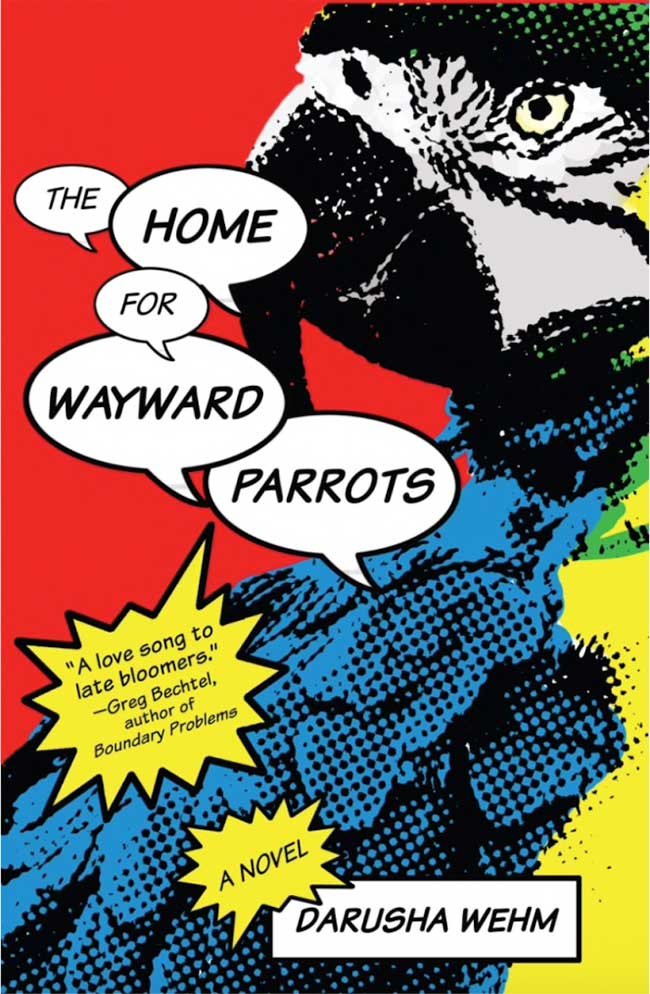 by Anne Logan
by Anne Logan
The Home for Wayward Parrots
Darusha Wehm
NeWest Press (2018)
ISBN 978-1-988732-27-5
What makes a coming-of-age story? Does it simply need to cover the years from birth to adulthood, or must it entail an emotional maturation as well? The Home for Wayward Parrots by Darusha Wehm does both, although it only skims the surface of the complicated familial circumstances the protagonist and narrator, Brian Guillemot, navigates throughout his journey.
Brian Guillemot has had a relatively normal upbringing; as an only child, he experiences a stable and loving environment, growing up and eventually apart from a core group of three friends who spend their free time engaging in expected and relatively innocent childhood behaviour. For as long as he can remember Brian has known he was adopted, and, as he gets older, the desire to find his birth mother intensifies to the point that he dedicates a good part of his late teenage years and early twenties seeking her out.
The book begins with the moment Brian’s birth mother calls him on the phone, so this maternal search is not the source of suspense for the novel. However, each chapter alternates between an earlier time and the present day, so we learn about his birth family slowly, allowing us to absorb each new detail gradually, alongside Brian. Despite the ease in which we slide into this disruptive phase of Brian’s life, we aren’t subject to a great deal of inner turmoil that he is no doubt experiencing. Instead, we get somewhat banal phrases such as “I couldn’t stop thinking about what they would be like” (p. 62) or “I fought not to judge her” (p. 58). Because this emotional journey is the main conflict of the novel, I expected to read about the manifestations of these feelings, but instead we are simply told how Brian feels in a fleeting sentence or two.
Aside from the reluctance to dig deeply into Brian’s anxieties, the plot is well-paced and taut, leading us through his discoveries and drawing out the mystery of who his birth father is. After meeting his birth mother face-to-face, it becomes clear that the question of where his paternal roots lie is a difficult one, clearly touching a nerve that his new extended family are all trying to avoid. The rest of Brian’s life is straightforward, almost unrealistically so, which makes this wrinkle in his trajectory a welcome one. It isn’t until the last few pages that he, as well as the reader, receives some closure, so the traipsing through the adoption history is entirely worth the work. The ending is clever, tying up loose ends that I had forgotten about up until then, which left me satisfied as I turned the last page. Although it sounds cliché, this is truly a ‘feel-good’ book that uses the simplicity of family love to remind us that unprovoked kindness still exists in many forms. Does it succeed as a coming-of-age novel? I would argue it doesn’t delve deep enough to succeed in that arena, but it is an optimistic and accessible read, nonetheless.
Anne Logan has worked in the Canadian book industry for the past 10 years as a publicist, literary festival programmer, and book reviewer. She is the book columnist for CBC Calgary, and the host of the We’ve Read This book club held in partnership with Wordfest. She also reviews books on her own website ivereadthis.com. She is a Past President of the Writers’ Guild of Alberta and a current Board Member of Calgary Reads.

